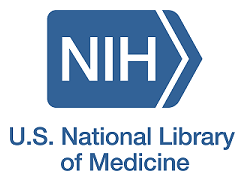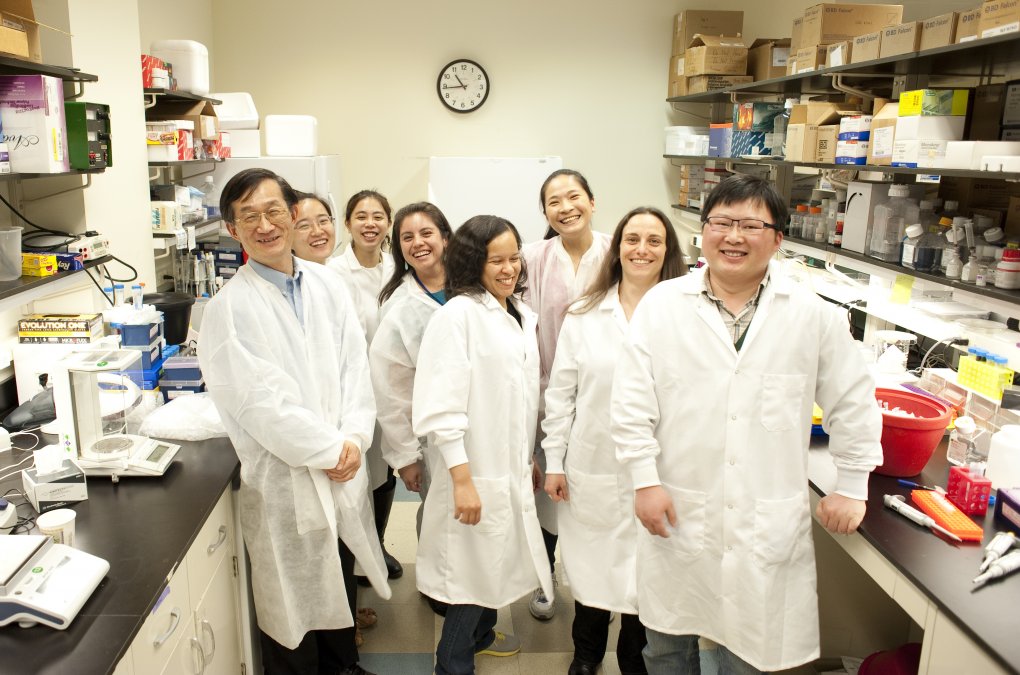

To Your Health: NLM update Transcript
Summarizing science: 09/19/2016

Image: Courtesy of the National Institutes of Health
Greetings from the National Library of Medicine and MedlinePlus.gov
Regards to all our listeners!
I'm Rob Logan, Ph.D., senior staff, U.S. National Library of Medicine (NLM).
Here is what's new this week in To Your Health - a consumer health oriented podcast from NLM - that helps you use MedlinePlus to follow up on weekly topics.
We break from tradition this week and note how young scientists self-describe their work, life, and challenges in an insightful summary of letters recently published in Science.
Earlier this year, Science invited younger scientists to use just six words to tell a story about their life, or the challenges of a scientist within their field. Science organized the responses into ten categories. We will quote a few of them because they provide insights into the minds of young scientific professionals from across the globe.
For instance, in describing research setbacks (in six words) a Chinese information scientist writes (and we quote): 'Mice eaten by cats, graduation delayed' (end of quote).
A U.S. immunologist writes (and we quote): 'The experiment failed. Or did I' (end of quote).
A U.S. energy and environmental genomics scientist writes (and we quote): 'Results were promising, until they weren't' (end of quote).
On scientific motivation: a German psychologist writes (and we quote): 'Try. Fail. Try harder. Fail again' (end of quote).
Similarly, a U.S. biophysicist writes (and we quote): 'Continuous failure redeemed by fleeting success' (end of quote).
On their lives and schedules, some younger scientists suggest the pressures of their jobs. A Chinese scientist writes (and we quote): 'Science and life; compartmentalized, need integration' (end of quote).
A U.S. chemical engineer writes (and we quote): 'Carpool partner available: 5am/11pm every day' (end of quote).
Regarding publication, a U.S. chemist writes (and we quote): 'Now deleting; Negative results, never published' (end of quote).
A U.S. psychologist writes (and we quote): 'No prestige given for null results' (end of quote).
Overall, the diverse, short descriptions alight on other areas including: data; careers; funding; recognition; diversity; parenthood; and discovery. Some of the letters provide pithy maxims and alldescribe the challenging road to create a career, sustain a reputation, balance one's life, and maintain perspective in order to do science and research. Some grounded reflections and an occasional sense of humor abound.
Let's hope Science asks young scientists to provide more abbreviated haikus in the future. However brief, the Science letters provide some welcome perspective about the young men and women we ask to pursue the evidence that undergirds better health and a higher quality of life. A welcome salute to them!
Meanwhile, some (but not all) of the scientific research in biomedicine occurs in clinical trials. MedlinePlus.gov has a helpful guide to understand clinical trials and the clinical trial process. The National Institutes of Health provides two websites about clinical trial basics and learning about clinical trials within the 'start here' section of MedlinePlus.gov's clinical trials health topic page.
MedlinePlus.gov's clinical trials health topic page additionally provides links to the latest pertinent journal research articles, which are available in the 'journal articles' section. You can sign up to receive updates about clinical trials as they become available on MedlinePlus.gov.
To find MedlinePlus.gov's clinical trials health topic page, please type 'clinical trials' in the search box on MedlinePlus.gov's home page, then, click on 'clinical trials (National Library of Medicine).' MedlinePlus.gov also publishes a clearinghouse of clinical trials from around the world that you can find at clinicaltrials.gov
Before I go, this reminder... MedlinePlus.gov is authoritative. It's free. We do not accept advertising .... and it is written to help you.
To find MedlinePlus.gov, just type 'MedlinePlus.gov' in any web browser, such as Firefox, Safari, Chrome, or Explorer, on any platform.
We encourage you to use MedlinePlus and please recommend it to your friends. MedlinePlus is available in English and Spanish. Some medical information is available in 48 other languages.
Your comments about this or any of our podcasts are always welcome.
Please email the podcast staff anytime at: NLMDirector@nlm.nih.gov
A written transcript of recent podcasts is available by typing 'To your health' in the search box on MedlinePlus.gov's home page.
The National Library of Medicine is one of 27 institutes and centers within the National Institutes of Health. The National Institutes of Health is part of the U.S. Department of Health and Human Services.
A disclaimer — the information presented in this program should not replace the medical advice of your physician. You should not use this information to diagnose or treat any disease without first consulting with your physician or other health care provider.
In less than six words: many thanks for joining me.
Please return next week and here's to your health!






















.png)











No hay comentarios:
Publicar un comentario